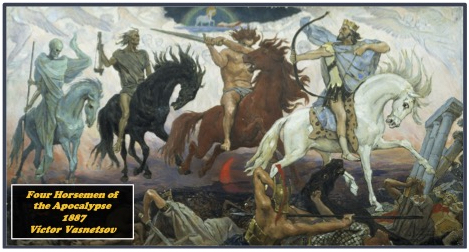Will God or his Church intervene in Ukraine before it’s too late?
Will God or his Church intervene in Ukraine before it’s too late?
 Editorial: The Rev’d Dr. Nicholas Henderson
Editorial: The Rev’d Dr. Nicholas Henderson
Rowan Williams former Archbishop of Canterbury 2003-2012 appeared with an ash mark still on his forehead on Ash Wednesday, 2nd March urging senior Orthodox church leaders outside Russia to stand alongside archbishops, patriarchs and the Pope in calling for an immediate ceasefire in Ukraine[1].
In a letter to the London Times newspaper, Williams went further still calling for the leadership of the Church in Russia to call (at the very least) for a ceasefire. Although not named specifically his words inevitably focussed on The Patriarch of Moscow and all Rus’, His Holiness Patriarch Kirill. It is this figure perhaps more than any other who might be able to influence the military policies of the indisputably religious Vladimir Putin?
The Orthodox Church in Russia is extremely powerful having regained, after the seventy years or so of persecution by former Soviet Communist rule, the status almost of a Department of State. In this it has re-established the position that it enjoyed in previous centuries. Over a long history it has been both Erastian and subversive claiming the title of the Third Rome in succession to Rome and Constantinople and mastery in the art of survival.
Rowan Williams, with his intense interest in Orthodox spirituality, knows the Russian Church well in all its Byzantine complexities. He is quoted as saying that if he were to meet the Russian Orthodox leader, he would say: “It is your people who are being killed. It’s not foreigners, it’s not strangers, it is your people. How do you make sense of that? What are we going to do about it? I would want him to make a statement pressing for a ceasefire —immediately”[2]
Now, some four weeks into the current invasion of Ukraine by Vladimir Putin and some eight years of fighting in the East of the country and after the annexation of Crimea, a ghastly blitzkrieg has ensued. Increasingly, the new Russian advance into Ukraine has met with unexpectedly stiff resistance. In turn the Russian military with its advanced weaponry seems to have become more and more willing to use indiscriminate bombing, shooting and fearsome hypersonic, unstoppable missiles. There is now a constant fear of the use of terrible chemical and biological weapons. Putin himself has hinted at the use of nuclear weapons putting his forces into a ‘higher state of alert’.
No-one can be sure of the eventual outcome but the ramifications of what the Russian people, deprived of a free press, hear of as a ‘special military operation’[3] and what the world in general perceives as an invasion, is in fact a brutal war. Costing thousands of lives and causing untold misery this war has the potential to be epoch changing. From political realignment, to a refugee crisis of the kind not seen in Europe since the Second World War, horrible conditions for the people of Ukraine, growing economic turmoil, even projected famine as the breadbasket of Europe closes down, there remains the potential for international disruption and indeed world war.
No-wonder Church leaders have at last woken up, to a degree – on that great mouthpiece of communication Twitter, calls were made for Sunday 24th February to be a day of prayer for peace by the Archbishops of Canterbury and York – ‘The horrific and unprovoked attack on Ukraine is an act of great evil. We call for Christians to make this Sunday a day for prayer for peace’[4].
Prayer is certainly needed and by Christians can never be dismissed but the outworking will depend on managing an increasingly complicated political maelstrom. This demands cool heads, and a careful and co-ordinated political response, not least internationally. This should also include more than the sluggish and seemingly half-hearted care of Ukrainian refugees offered thus far by the British government. May local elections on the horizon and a fear of a domestic hostile reaction are perhaps behind Britain’s poor record compared to its European counterparts?
Meanwhile, in the seemingly far-off United States of America, President Biden has called President Putin a ‘war criminal’[5]. At the same time the Republican party’s response seems ambivalent, certainly hard to understand[6]. This sorry list is not exhaustive as we have as yet the still uncertain reaction of giants such as China and India to the bitter conflict. A more detailed examination is required but beyond the capacity of a simple Editorial to explore.
Suffice it to say the medieval religious world in similar circumstances would by now have been in sackcloth and ashes expecting the impending wrath of God. Now, following a pandemic, and a conflict with the potential of a world war, all that is missing is a comet in the sky. What to do … surely, today we are more advanced than then … aren’t we?
Nicholas Henderson
Mothering Sunday 27th March 2022
[1] https://religionmediacentre.org.uk/news/religion-at-the-heart-of-understanding-russias-claim-on-ukraine/
[2] Ibid
[3] https://news.sky.com/video/vladimir-putin-announces-special-military-operation-in-ukraine-12550049
[4] https://twitter.com/JustinWelby/status/1496788421238562816
[5] https://www.rferl.org/a/russia-putin-war-criminal-sullivan/31763562.html
[6] https://www.theguardian.com/commentisfree/2022/mar/01/why-does-putin-have-superfans-among-the-us-right-wing

